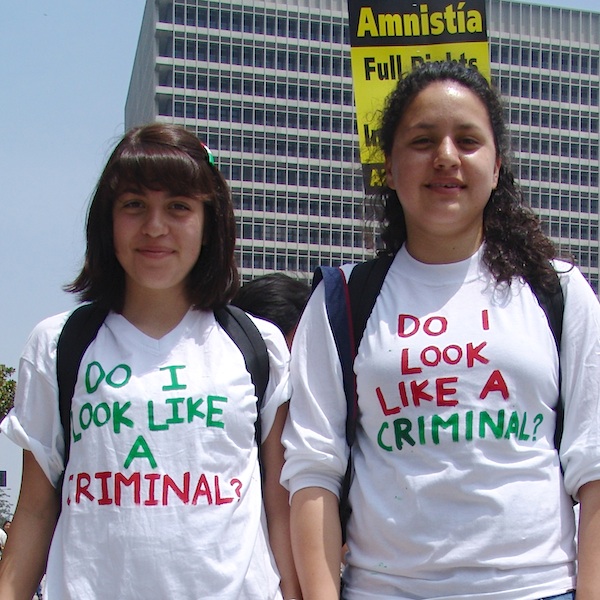 I’m often asked, “Where were you born?”
I’m often asked, “Where were you born?”
My answer? Houston, Texas.
“Where were your parents born?”
El Paso, Texas.
“Where were your grandparents born?”
El Paso, Texas, Balmorhea, Texas and Ft. Davis, Texas.
That is when people usually start to get frustrated and ask, “Well, where is your family from originally?”
The actual meaning behind this statement is “You are a brown-skinned woman and brown-skinned women are not native to the U.S.”
My answers explain that I am not the stranger. Texas, New Mexico, Arizona, California, Colorado, Nevada and Utah were all once part of Mexico, after all.
At times it seems as though people think that the answers to questions regarding my family history stem from some sort of shame of my Mexican ancestry. While I am extremely proud of my Mexican ancestry, I also have to acknowledge the fact that I am not culturally Mexican. I grew up in the U.S. with a great deal of Mexican cultural influence accompanied by the array of cultural diversity that makes up the Greater Houston area. My cultural influences coupled with my progressive political ideology shapes my identity as a Chicana.
If I did not acknowledge my culture complexity, I would be even more confusing for my Spanish-speaking clients who see me as a brown woman but hear my thick “pocha” accent when I speak Spanish. [“Pocho” or “Pocha” is used to single out U.S. citizens of Mexican descent who lack partial or total command or fluency in Spanish.] I used to be ashamed of this accent. Well, to be honest, I still am and probably always will be a little ashamed of my inability to ever speak Spanish without an accent.
The questions then follow: Do you have any family in Mexico? No, not anymore, not since the Mexican revolution around 1910. Then why do you care so much about immigrants? I care about immigrants and immigration law because I believe in social justice. One does not have to be an immigrant or have immigrant family members to have concern for immigration issues.
I care about immigrants because my maternal grandmother taught my mother to care about the poor living in Juarez, Mexico. A devout Catholic, she made the priest from El Paso cross the border in order to bless the poor families who lived in abject poverty. I care about immigrants because despite the fact that my paternal grandmother is a third generation U.S. citizen, she grew up in the segregated town of Ft. Davis, Texas where she was referred to as “Mexican” because she spoke Spanish.
I care about immigration because when I was a child, my mother explained the privileges that came as a result of my random birth in the U.S., and that with those privileges came great responsibility to help others. My mother took me along when she delivered food to the immigrant shelter. She also opened our home to a number of immigrant women who fled abusive husbands. She taught me to treat everyone, regardless of where they came from, with dignity and respect.
I care about immigrants because even as an English-dominant kid growing up in Houston, Texas, I was looked at as the “other” in my white neighborhood and my white schools. From kindergarten to law school I was often one of the few, if not the only, brown person in my class. In my own way, I have understood oppression since childhood. Anyone who knows what it feels like to be stereotyped, or considered different, or inferior, or weak, or just not “one of the guys” could say the same. That is why I care about immigrants. Anyone who has ever experienced the feeling that you will never truly belong because of your gender, sexuality, skin color, ancestry, disability or a myriad of categories that differ from mainstream society, can develop sympathy for the immigrant struggle.
When we recognize the similarities amongst oppressed communities, we realize that by fighting for justice for immigrants we fight for equality for all oppressed groups.
For these reasons I have chosen to become an immigration attorney. I hope that in your own way, you will join the immigrant rights movement so that we can move our country toward meeting its full potential of equitable inclusion for all.
- Frances E. Valdez is an attorney and DREAM Act activist based in Houston, TX.
This blog post courtesy So To Speak Journal, a feminist journal of language and art.
